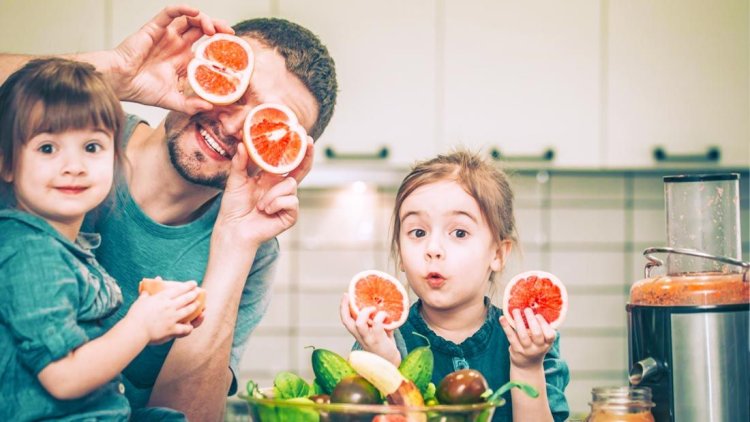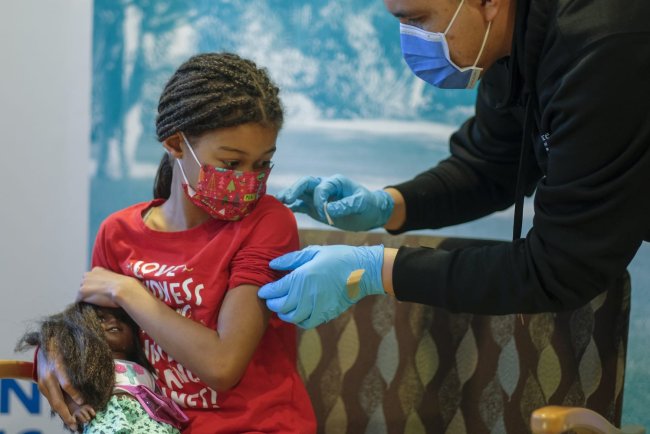What Parents Need to Know About a Vegan Diet for Kids
Vegan diets once considered rare are becoming more and more common. Some kids or teens choose them for health reasons, while others do it because they care about sustainability or animal welfare. Whatever the motivation, a vegan diet can absolutely be healthy for children, but it does require some extra planning.

Before making the switch, it’s wise to talk with your child’s doctor — and ideally a nutritionist too — to make sure all nutritional needs are being met. Here’s what parents should keep in mind.
Calories and Protein: The Building Blocks
Calories. Plant-based foods often have fewer calories than animal-based foods. That’s not a bad thing in a country struggling with childhood obesity, but kids still need enough calories to grow and stay energized. Foods like nut butters, soy products, granola, and whole grains can help boost calorie intake.
Protein. Protein isn’t just about muscles it supports nearly every process in the body. That doesn’t mean vegan kids can’t get enough they just need a variety of protein-rich foods. Nuts, beans, lentils, soy, and whole grains are all good options. In general, vegan children may need slightly more protein than omnivores.
Key Vitamins and Minerals

Certain nutrients are trickier to get on a vegan diet, so parents should pay special attention to:
Calcium. Crucial for bone health. Beyond dairy, look to leafy greens (like kale, bok choy, broccoli) and fortified plant milks or orange juice.
Iron. Important for strong blood and energy. Plant-based sources include fortified cereals, beans, and lentils but because plant iron isn’t absorbed as well, a multivitamin with iron can help.
Vitamin B12. This one is especially hard to get without animal products. Fortified soy beverages, cereals, or a multivitamin are usually necessary.
Vitamin D. Sunlight is the best source, but many kids don’t get enough. Fortified foods help, but supplements are often needed (400 IU daily for young kids; older children may need more).
Fiber. Here’s one nutrient vegan diets may actually over-deliver on. Too much fiber can fill kids up before they get enough calories. Providing cooked vegetables, peeled fruits, and refined grains can help bring things into balance.
Beyond Diet: Eating's Social Aspects

Food serves as more than just sustenance; it also fosters connections, family, and enjoyment. For this reason, when a child desires to follow a vegan diet, parents should consider factors other than nutrition.
Motivation is important. While some teenagers make the conscious decision to become vegans, others may do so to cover up issues with disordered eating or body image. Consult your physician if you are concerned.
Social situations can sometimes be tricky for kids who follow a vegan diet. When the food options at sleepovers, school lunches, or birthday celebrations do not correspond with what they consume at home, kids may feel excluded. For this reason, having a plan is beneficial. Perhaps it involves preparing enjoyable substitutes so they do not miss out or honing their ability to effectively and unapologetically explain their decisions to others.
The Bottom Line
There is no doubt that a vegan diet can improve a child's health, but it does need more planning and preparation. For optimal growth, children require adequate calories, protein, and essential minerals such as calcium, iron, and vitamin B12. Food is not just about nutrition; it is also about connection, therefore parents must consider the emotional and social aspects of things.
Kids can flourish on a vegan diet and still experience the happiness, enjoyment, and camaraderie that come with eating meals with friends and family if proper preparation and honest discussions are in place.
What's Your Reaction?




















